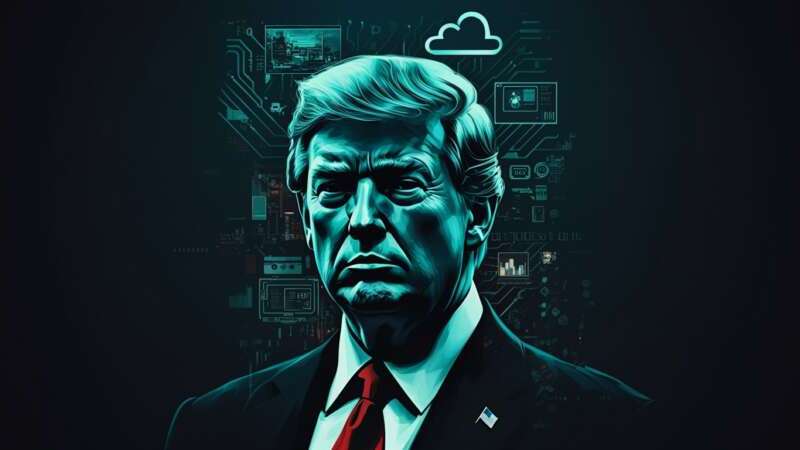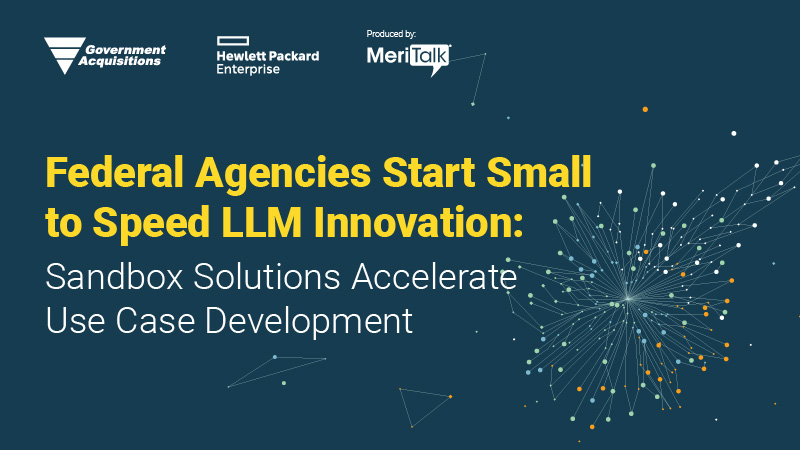
President-elect Trump’s decision to appoint a prominent Silicon Valley investor to oversee Federal artificial intelligence (AI) policy points to changes that may be coming in how the government approaches its use of the technology – including what is expected to be a looser regulatory style and a possible repeal or modification of President Biden’s AI executive order (EO).
In a series of posts on his Truth Social platform, Trump on Thursday named David Sacks as his “White House A.I. & Crypto Czar,” taking the novel step of putting AI and cryptocurrency under the same policy umbrella.
“In this important role, David will guide policy for the Administration in Artificial Intelligence and Cryptocurrency, two areas critical to the future of American competitiveness,” Trump said. “David will focus on making America the clear global leader in both areas. He will safeguard Free Speech online, and steer us away from Big Tech bias and censorship … David will also lead the Presidential Council of Advisors for Science and Technology.”
Sacks, 52, an early PayPal executive and current podcast host who is a prominent conservative and who spoke at this year’s Republican National Convention, quickly thanked the president-elect in a post of his own on X. “I look forward to advancing American competitiveness in these critical technologies,” Sacks said. “Under your leadership, the future is bright!”
The appointment reinforced the impression among some Federal technology experts that change is afoot in the Federal approach to AI, which has been guided in large measure by Biden’s AI EO issued in October 2023.
Since then, government agencies have completed more than 100 taskings under the order, developed an extensive range of AI use cases, and the administration has created the AI Safety Institute (AISI) within the National Institute of Standards and Technology (NIST) to advance safe and secure AI.
But the Republican Party’s 2024 campaign platform in June for Trump’s re-election vowed to scrap the Biden EO, stating in part that the order “hinders AI Innovation, and imposes Radical Leftwing ideas on the development of this technology.”
The following month, Sacks – whose ties to conservative politicians have grown in recent years and who co-hosted a fundraiser for Trump with guests paying up to $300,000 each – warned the convention that Biden had left “a world on fire.”
“The world looks on in horror as Joe Biden’s demented policy takes us to the brink of World War Three,” said Sacks, who cited policies such as the administration’s approach to Russia’s invasion of Ukraine.
Sacks did not address AI, and Trump’s specific approach to the technology remains unclear. But Vivek Ramaswamy – co-lead of Trump’s proposed Department of Government Efficiency (DOGE) advisory group – this week warned Federal officials against “fetishizing the tool” of AI at a time when the government has “a lot of lower hanging fruit” for IT modernization.
Ramaswamy said DOGE plans to use AI to advance its mission but emphasized that he is “resisting the AI illusion”
DOGE, which has a mission to reduce government spending and potentially eliminate some government operations, is also led by businessman and strong Trump supporter Elon Musk. He is personally close with Sacks, according to media reports.
Steve Jang, a business associate of Sacks, told Reuters that Sacks “will likely have a light touch on regulation,” of both AI and crypto, “but not without some guardrails.”
Federal tech experts have also told MeriTalk that the incoming administration is likely to shift its stance toward a more muscular and perhaps less cautious adoption of AI technology, especially in the context of bolstering national security.

At least one Republican who is prominent on tech policy, Rep. Jay Obernolte, R-Calif., is urging Trump officials to maintain a key element of Biden’ AI policy: the NIST AI safety institute.
“The safety institute … is going to be very critical for the success of artificial intelligence in the United States,” Obernolte, who is co-chair of the House Artificial Intelligence Task Force, said this week.
Sacks, a native of South Africa, graduated from Stanford University in 1994 and the University of Chicago Law School in 1998, according to his LinkedIn profile.
He was an early executive at PayPal and part of the so-called “PayPal mafia” with other company leaders – including Musk – a term he still cites on his profile.
Sacks also founded Yammer, a social network for enterprise users that he says he sold to Microsoft in 2012 for $1.2 billion, and now leads a venture capital firm called Craft Ventures.
His political prominence stems in part from his hit podcast, “All-In,” which began in 2020 and has drawn a following among conservatives. Trump sat for an interview on the podcast in June.
